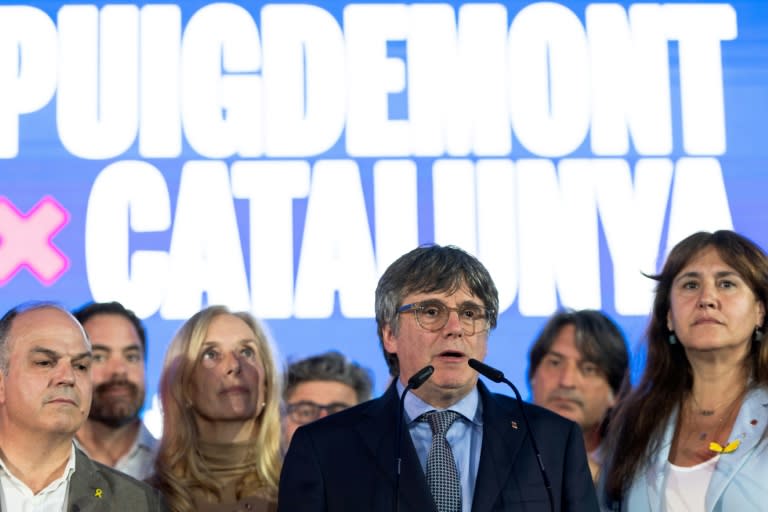Catalan separatist aims to form minority regional govt

- Oops!Something went wrong.Please try again later.
Catalan separatist leader Carles Puigdemont said Monday he would seek to form a pro-independence minority government in the Spanish region despite a weekend electoral setback.
Spain's governing Socialist Party won a regional election in Catalonia on Sunday, snatching away separatist parties' majority.
But Puigdemont insisted he was still in a position to rally pro-independence groups and form a regional government.
"We can assemble a coherent majority," added Puigdemont, who lives abroad in exile to escape trial for leading a botched independence bid in 2017.
"Not an absolute one, but a coherent one, bigger than the one the Socialist Party candidate can gather," added Puigdemont, leader of the centre-right hardline separatist party JxCat.
"We are going to concentrate on that from now on."
He said he envisaged standing as a candidate for leader in a vote in the new Catalan regional parliament.
The Socialists won 42 of the regional parliament's 135 seats on Sunday -- nine more than in the previous election in 2021, but short of an absolute majority.
Analysts say the Socialists could ally with the radical left Comuns Sumar, which won six seats, and moderate independence party ERC, which won 20.
JxCat, ERC and the smaller hard-left CUP secured 59 seats between them, compared with 74 last time.
Puigdemont insisted the independence parties had "potentially more options" for winning office.
He said he had been in touch with ERC to discuss creating "a pro-sovereignty government".
Puigdemont spoke in Argeles-sur-Mer, a few kilometres (miles) from the Spanish border.
Ahead of the vote, he had pledged to retire from politics if he lost.
Sunday's result offered a boost to Spain's Socialist Prime Minister Pedro Sanchez.
He had wanted to show that his policy of defusing tensions triggered by the 2017 crisis had worked, reducing pro-independence sentiment in the wealthy northeastern region of eight million people.
rs-CHZ/rlp/jm

